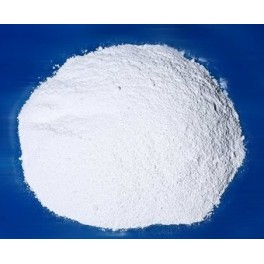- Boron is a mineral that is found in food and the environment. People take boron supplements as medicine.
Contents
Uses
- Boron is used for building strong bones, treating osteoarthritis, as an aid for building muscles and increasing testosterone levels, and for improving thinking skills and muscle coordination.
- Women sometimes use capsules containing boric acid, the most common form of boron, inside the vagina to treat yeast infections.
- People also apply boric acid to the skin as an astringent or to prevent infection; or use it as an eye wash.
- Boron was used as a food preservative between 1870 and 1920, and during World Wars I and II.
Benefits
- Boron seems to affect the way the body handles other minerals such as magnesium and phosphorus. It also seems to increase estrogen levels in older (post-menopausal) women and healthy men. Estrogen is thought to be helpful in maintaining healthy bones and mental function. Boric acid, a common form of boron, can kill yeast that cause vaginal infections.
Cautions
- Boron is POSSIBLY UNSAFE for adults and children when taken by mouth in high doses. Large quantities of boron can cause poisoning. Signs of poisoning include skin inflammation and peeling, irritability, tremors, convulsions, weakness, headaches, depression, diarrhea, vomiting, and other symptoms.
- Boric acid powder, a common form of boron, is POSSIBLY UNSAFE when applied in large amounts to prevent diaper rash.
- Pregnancy and breast-feeding: Boron is LIKELY SAFE for pregnant and breast-feeding women age 19-50 when used in doses less that 20 mg per day. Pregnant and breast-feeding women age 14 to 18 should not take more than 17 mg per day. Taking boron by mouth in high doses is POSSIBLY UNSAFE while pregnant and breast feeding. Higher amounts may be harmful and should not be used by pregnant women because it has been linked to birth defects. Intravaginal boric acid has been associated with a 2.7- to 2.8-fold increased risk of birth defects when used during the first 4 months of pregnancy.
- Hormone-sensitive condition such as breast cancer, uterine cancer, ovarian cancer, endometriosis, or uterine fibroids: Boron might act like estrogen. If you have any condition that might be made worse by exposure to estrogen, avoid supplemental boron or high amounts of boron from foods.
- Kidney disease or problems with kidney function: Do not take boron supplements if you have kidney problems. The kidneys have to work hard to flush out boron.
Interactions
Moderate Interaction Be cautious with this combination:
Estrogens interacts with BORON: Boron might increase estrogen levels in the body. Taking boron along with estrogens might cause too much estrogen in the body.
Other Names
Acide Borique, Anhydride Borique, Atomic number 5, B (chemical symbol), B (symbole chimique), Borate, Borate de Sodium, Borates, Bore, Boric Acid, Boric Anhydride, Boric Tartrate, Boro, Numéro Atomique 5, Sodium Borate.
References
Source: WebMD, “Boron”, www.webmd.com/vitamins-supplements/

